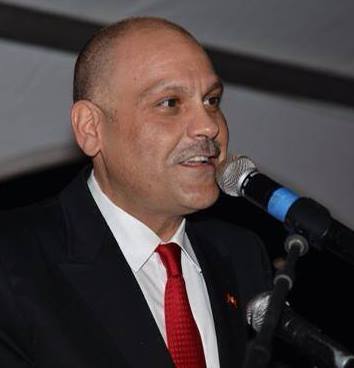The Money Laundering (Prevention) (Amendment) Bill, which was up for yet another amendment on Thursday in the House of Representatives, was the subject of considerable debate with former Investment and Tourism Minister Hon. Asot Michael questioning the language of the Bill and its potential to stifle and persecute innocent persons not engaged in the nefarious activity of money laundering.
“I support the bill wholeheartedly. We have to pass these types of legislation,” Michael said, adding, “This is the umpteenth amendment to this bill and the reason for it seems [simply] to legislate the recommendations of the Caribbean Financial Action Task Force (CFATF) that were made in its Mutual Evaluation Report on Antigua and Barbuda in 2018.
“We as lawmakers should have sight of this report and also the update of the FATF 40 Recommendations 2020, as referenced in the Explanatory Memorandum,” the MP affirmed.
MP Michael’s challenge stands firmly with the unexplained wealth order, which is a form of civil confiscation order used where a person is ‘suspected’ of engaging in money laundering and is unable to explain the source of his wealth.
He said, “It is noticeable that an unexplained wealth order is triggered upon suspicion that one is engaging in money laundering. Compare this to the proceeds to crime provisions, which are triggered on conviction. We want to fight money laundering but we do not want to unjustly trample on the citizens’ right to property and privacy.”
The clause is supposedly based on precedent form the UK, Australia, and Trinidad Tobago.
“I would also like to ask, and the Hon. AG should tell us, what legal challenges have there been to these unexplained wealth orders in those countries? What have the courts of those countries said about those orders, which the government seeks to introduce here in Antigua and Barbuda.
“We deserve to know what are the safeguards to ensure that this will be an anti-money laundering measure and not a tool for political harassment or other ulterior motive,” the former Investment Minister said.
He said further that government should not pass legislation in government that it cannot live with in opposition. “The bill speaks of unexplained wealth… they can ask the director of ONDCP whomever he may be 10 years from now, or 20, how did Prime Minister, Gaston Browne, Asot Michael, any MP, civil servant, or member of the public, have accumulated their wealth, and [whatever] their explanation is they don’t have to accept it,” the MP contended.
“If the answer is unsatisfactory, your assets may be forfeited to the State,” he said, clarifying, however, that his citing of political figures was only a matter of immediate reference and not one of malicious targeting.
“This is bad legislation, this is draconian… We want to fight money laundering in this country, [and] I support the legislation… but, we can’t just do it willy-nilly,” Michael said.
“We have a constitution, which is the supreme law in this land however, there are certain parts of this bill that are unconstitutional any may result in legal challenges in the courts of Antigua and Barbuda.
“The right of persons to be secure in their person, papers and property, will now be overturned by this bill. The burden will now shift from the state to prove a crime to the citizen to prove innocence. This turns our British Common Law jurisprudence totally on its head,” declared the MP for St. Peter.
He said further, that the provisions being applied could have consequences that the State may not necessarily foresee at this time; noting that simple banking in Antigua and Barbuda is “very restricted” in terms of the commercial development of the country. “It is very difficult to move money through the banks, even our CIP money.”
Responding to Michael’s stance, Prime Minister and Minister of Finance Hon. Gaston Browne – the mover of the Bill – said he understood his colleague’s position but noted that compliance with the CFATF recommendations was out of the hands of Antigua and Barbuda, and refusal was akin to sanctions which, following ripple effects, would lead the legislative team to inevitably make the amendments in the end.
“If we refuse to pass this piece of legislation there will be consequences and we will have to come back and pass it. Notwithstanding the potent arguments. It is necessary, even though we may not agree,” Prime Minister Browne said.
The St. Peter MP however, maintained that the level of due diligence and the anti-money laundering guidelines per the CFATF recommendations are too rigid. “They are totally insensitive to the fact that banking services are key to commerce in this country, the PM has advocated this on many occasions,” he said.
Michael went on to cite a number of unclear verbiages in the legislation that he believes has left a lot of open windows for misunderstanding and abuse. Some of these were addressed at the committee stage of Thursday’s debate.
“I am also fully aware of the need for us to be fully compliant with the best international standards and practices of anti-money laundering and anti-terrorism, in order to have a clean jurisdiction that we can be proud of and to be the leader in the entire Caribbean. The last thing that we want in this jurisdiction is to be blacklisted as has happened during the era of Allen Stanford, and have financial advisories issued against Antigua and Barbuda by the OECD, CFATF, US and UK Government.
“I’m here to support the Bill. Anything that is onerous and I think that tramples on the rights of the private citizen and that are unconstitutional, we should expunge,” the MP said.

